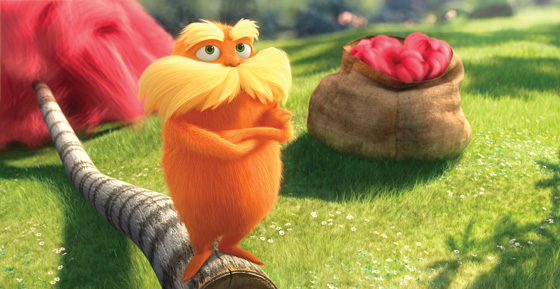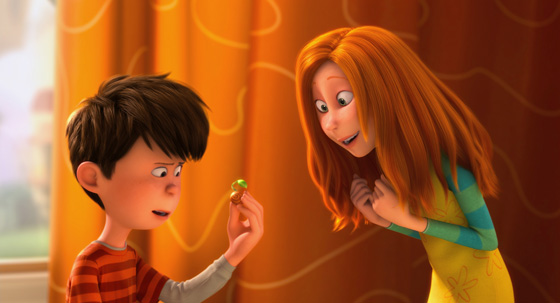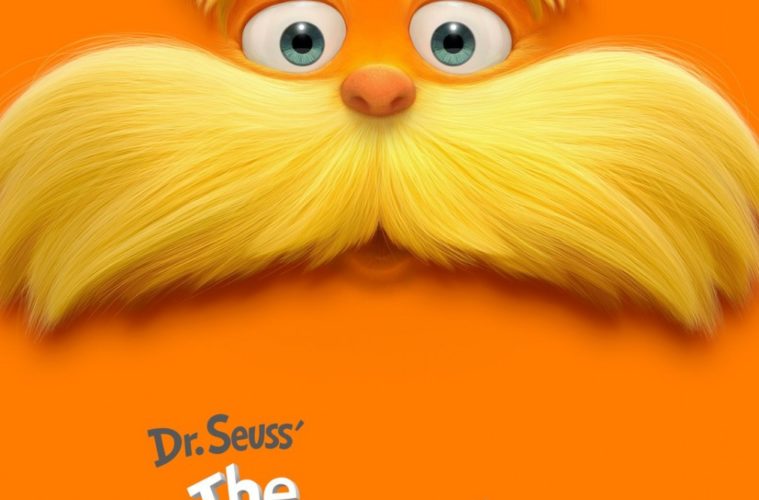I loved The Land Before Time when I was a kid. It was a cute story with memorable characters in a world full of dinosaurs that utterly fascinated me. I remember seeing it in the theatre, getting the plastic hand puppets from Pizza Hut, and eventually acquiring a VHS of the film through some other restaurant’s promotion. There was something about it that allowed for its message of friendship, love, and whatever else to come across without a shred of overt manipulation or gimmicks to reel in the ever-evolving minds of the children watching. Back then, if you weren’t Disney you didn’t even attempt to populate an animated film with song—at least until it came time to cash-in on sequels.

When Pixar showed family films with story could succeed, not even the Mouse House needed cute critters breaking out into song anymore. It appeared the era might come to a close to usher in a new one with intelligent screenplays and legitimately funny character interactions replacing romantic ballads padding runtime. If music wasn’t utilized correctly—and it wasn’t in the litany of Land Before Time direct-to-video releases—it hurt more than helped. Disney has recently reinvigorated their use of quality-written songs while the rest of Hollywood still steered clear. Sadly, however, Illumination Entertainment couldn’t resist spicing up their adaptation of Dr. Seuss’ The Lorax with a few uninspired ditties. The source material rhymed, after all. And rhyme is merely a gateway to tripe like “How Bad Can I Be?”
Well, Mr. Once-ler (Ed Helms), you can be pretty bad. In a film that keeps its blatant environmentalism in check as much as possible before the final song and dance number titled, “Let It Grow”, I really could have gotten behind the message and story if not for the musical trainwrecks slicing through its humorously broad heroes and villains. We all know Helms enjoys singing and we all love him for this fact, but an interlude showing his character’s greed and ego rising high until his Once-ler is a giant looming over the entirety of what’s left of the Truffula tree fields is too much. The song is far from melodious, almost becoming a spoken word rap, and its inclusion is solely to add chaotic movement for the 3D gimmick every six-year-old at my screening ate up. Maybe it works to make money by selling soundtracks, but isn’t this type of greed what the film warns us against?
I’ll guess screenwriters Ken Daurio and Cinco Paul chose to include this track because their take on Seuss’ tale is much less dark than the source. Quite somber and a bit more on-the-nose than many may have wanted—there’s been detraction from the logging industry and Lake Erie amongst others—the original Lorax could use a bit more conflict to temper the sunny, cutesy aesthetic of woodland creatures chowing down on marshmallows. And although Ted’s (Zac Efron) plight to win the heart of Audrey (Taylor Swift) with a real tree inside their plastic world was created to add another good vs. evil plotline besides the industry destroying nature subtext, the tone remains cheery. Money-grubbing, air-manufacturer Mr. O’Hare (Rob Riggle) attempts to be evil but his small stature and contrasting gruffness only make him a parody rather than true-to-form villain.

Efron gives Ted—the boy who served as our entry point into the book—an affable, underdog to get behind while his Mom (Jenny Slate) and Grammy (Betty White) round out the comedy with over-the-top familial antics. And while their home of Thneedville—its name taken from the versatile garment Once-ler made his fortune on from the Truffula tree wool—feels the need to break into song so we can take a tour of its ingenious blow-up foliage, multiple climates, and polluting vehicles, Ted and Audrey don’t join in. This is a very telling thing when your main characters avoid the gimmick you lean so heavily on otherwise. Even the Lorax (Danny Devito) escapes falling prey to cliché as he stays true to the poems of Seuss and surprisingly does his best to make us forgot the baggage of crass bullishness we generally equate to the actor’s performances.
There simply isn’t a need for the clunky lyrics when everything else works so well. Ted and Audrey’s courting is cute despite her looking twice his age; O’Hare is a fun antagonist due to a goofy haircut, Riggle’s crazed enthusiasm, and a pair of massive bodyguards recalling The Triplets of Belleville‘s henchmen; Once-ler is perfectly positioned as orator to tell the original book’s story and allow for Ted’s new world to live alongside it; and the Lorax “speaks for the trees” and hammers home the theme to care for our world without over-stepping his welcome. In fact, I was pleasantly surprised by how little screen time this tiny orange guy has. He serves his purpose and lets the new tale of greed evolve from his springboard rather than bog it down by a nostalgic need to overshadow.
The animation screams Seuss and directors Chris Renaud and Kyle Balda do their best to make the 3D relevant whenever possible. Thneedville’s plasticity is a lot of fun and the sumptuous fields of Truffula trees shine in flashback as Once-ler prances around with big dreams and a weak conscience. The Bar-ba-Loots, Swomee Swans, and Humming Fish are hilarious while their Disney-fied big, watery eyes are the cutest things in the world. They capture our hearts in part because the filmmakers really softened Once-ler’s drive for fame and fortune to make him want to co-exist with the forest until his family ruins compromise and takes control. This is a welcome change since we now have O’Hare to hate and need to believe Once-ler’s quest for redemption. His is the cautionary tale inspiring young Ted and soon becomes the heart of the film. And if not for the music derailing the story with almost every note sung, that would have been enough.
Dr. Seuss’ The Lorax is now in wide release.

